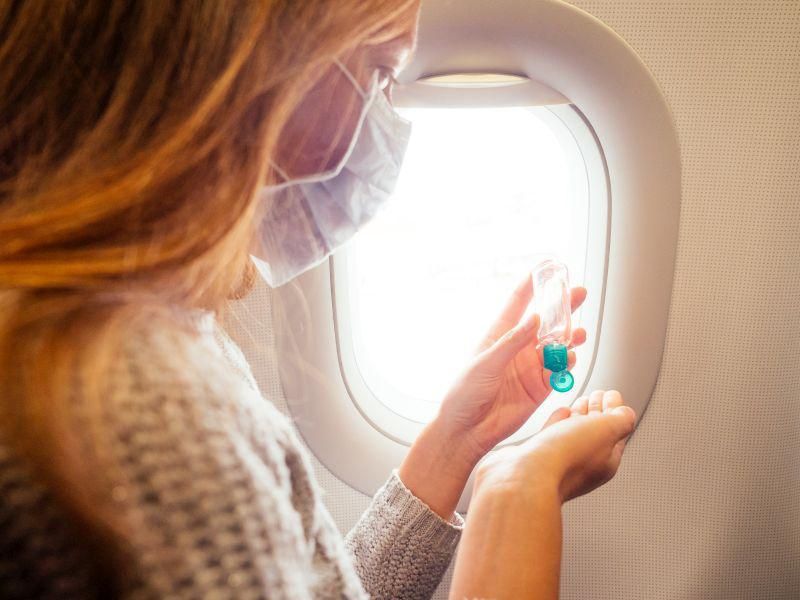
If you must travel during the spring break, be sure to follow recommended COVID-19 pandemic safety measures, an emergency medicine doctor advises.
Millions of people are packing airports, while only one-quarter of the U.S. population has received at least one shot of a COVID-19 vaccine, noted Dr. Lewis Nelson, director of the department of emergency medicine at Rutgers New Jersey Medical School.
That means it’s crucial for travelers to adhere to public health measures such as social distancing, washing hands and wearing a mask.
“The primary concerns with travel right now are the social reasons and the rise of COVID-19 variants. Visiting family in a quiet environment is low risk. On the other hand, traveling to a place where there will be singing and shouting, close contact in large groups, and consuming drugs or alcohol all raise the risk of transmitting or contracting COVID-19,” Nelson said in a school news release.
“Exposure to variant viruses, which may not respond to vaccines as well, and bringing them back home on your return raises the risk of spread to new regions,” he added.
You can’t know if you’ve been exposed to the predominant strain or to a variant, he noted, so limiting your risk of exposure is crucial to preventing the spread of the virus.
“The vaccines are very good but not perfect. We do not know about the effectiveness of vaccines on the variant viruses,” Nelson said.
If you must travel, you “should wear a mask in public and around high-risk people, which will protect others from you in case you harbor the virus in your throat, and you from others. It is essential to avoid crowds, even outdoors but particularly indoors, and particularly if mask-wearing is not being practiced in earnest,” he explained.
Washing your hands and/or using a hand sanitizer will help reduce the risk of spread.
Don’t travel or socialize if you are sick, whether with COVID-like symptoms or another illness, Nelson stressed.
Also, be aware of your surroundings and socially distance yourself from anyone who is sick or coughing.
When you return home from your trip, follow whatever the U.S. Centers for Disease Control and Prevention’s recommendations are at the time, Nelson advised.
More information
The U.S. Centers for Disease Control and Prevention has more on COVID-19 and travel.
SOURCE: Rutgers New Jersey Medical School, news release, March 25, 2021
Source: HealthDay

Leave a Reply